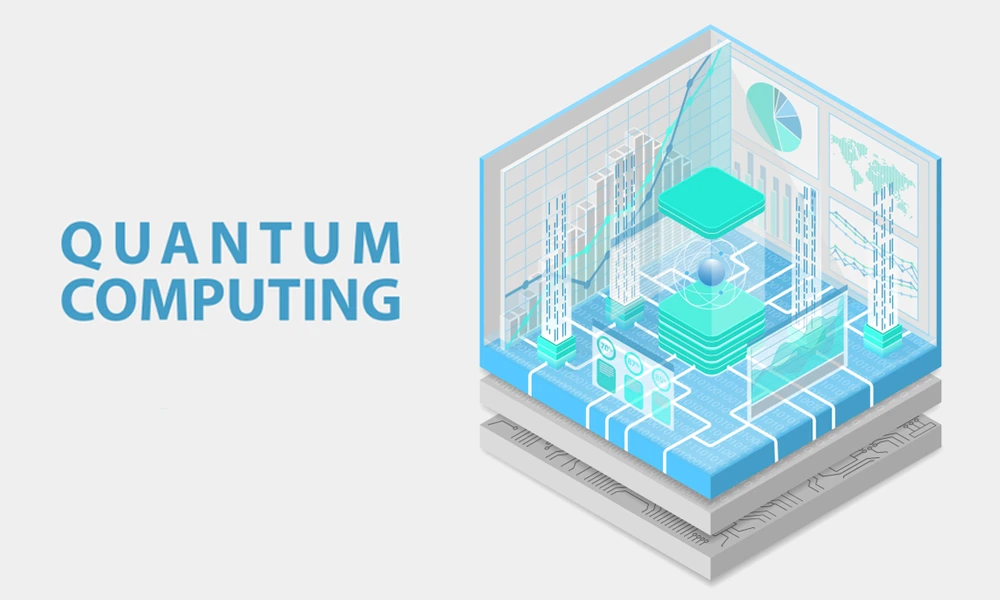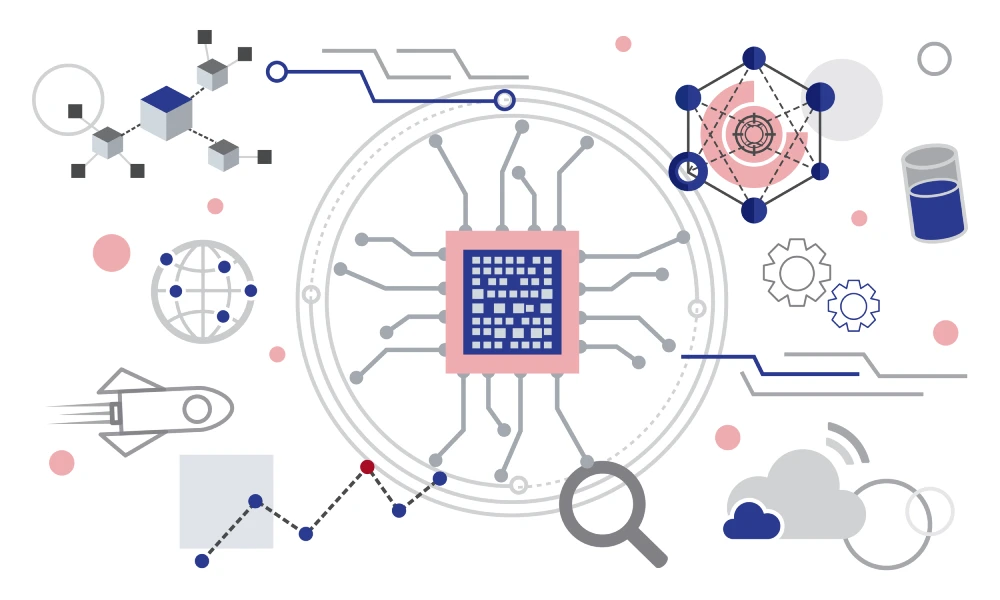
A new frontier is forming in the field of computing, where every development pulls us closer to the future—one painted with the ethereal colors of quantum physics. Quantum computing, formerly confined to theoretical worlds, is now acquiring physical shape, promising to go beyond the limits of traditional calculation. Unlike traditional computers, which process data in binary bits, quantum computers make use of the complicated concepts of quantum bits, or qubits. These qubits, which exist in numerous states at the same time, have an unrivaled capacity to solve complicated problems at exponential speed, altering sectors ranging from encryption to drug development.
As we enter the era of quantum computing, we are not just gaining access to quicker computations; we are also beginning a journey that may redefine the very bounds of human understanding.
What Is Quantum Computing?

Quantum computing is a new sort of computer that processes information using the unusual principles of quantum physics. Unlike traditional computers, which use bits to represent 0s and 1s, quantum computers use “qubits,” which may be either 0 or 1, or both 0 and 1 at the same time due to a feature known as superposition. As a result, quantum computers can handle complicated problems far quicker than ordinary computers. It’s like having a supercharged calculator that can investigate several answers at the same time, possibly revolutionizing industries such as encryption, chemistry, and others.
History Of Quantum Computing
The origins of quantum computing may be traced back to the early 20th century, with contributions from scientists such as Max Planck, Albert Einstein, Niels Bohr, and Erwin Schrödinger. However, it wasn’t until the 1980s that physicist Richard Feynman advocated employing quantum systems to imitate physical processes, laying the groundwork for quantum computing.
Richard Feynman’s groundbreaking discussion on mimicking quantum systems with quantum computers took place in 1981. Shor’s method, developed by mathematician Peter Shor in 1994, demonstrated how a quantum computer could effectively factor enormous numbers, a process thought infeasible for conventional computers but critical for encryption.
The invention of the first working qubits, the fundamental units of quantum computers, was a significant milestone in the late 1990s and early 2000s. IBM exhibited the first two-qubit quantum computer in 2001, and since then, many industry titans and startups, including Google, IBM, and Rigetti, have joined the quantum race.
There have been gains in quantum supremacy in recent years, with Google’s quantum computer doing a job that would take classical computers an absurd period of time. This accomplishment demonstrated quantum computing’s ability to surpass conventional systems in particular situations.
The applications of quantum computing are growing. Quantum computers have the ability to transform cryptography, speed up drug development by modeling chemical interactions, optimize complicated systems such as supply chains, and improve machine learning tasks.
While obstacles such as maintaining qubit stability and error correction exist, the history of quantum computing shows a path of unrelenting investigation, cooperation, and invention that has shaped a technological environment with tantalizing but mostly untapped potential.
What Are The Changes Quantum Computing Can Make In Today’s Advanced Technology, And How?
The arrival of quantum computing looms as a possible game-changer in the rich fabric of today’s advanced technology, ready to unravel answers to challenges that have long confused traditional computers. Quantum computing, which draws on the perplexing concepts of quantum physics, has the potential to transform many areas of our digital world.
Quantum computing has the potential to drive advances in material research and drug development. Simulating quantum interactions with conventional computers is extremely difficult, but quantum computers might mimic molecular interactions correctly and quickly, leading to the discovery of new materials, catalysts, and pharmaceuticals.
Because of their exponential complexity, optimization problems in sectors ranging from logistics to finance are frequently unsolvable for classical computers. Quantum annealing and other quantum optimization methods might transform supply chain management, financial portfolio optimization, and other fields by discovering optimum solutions in a fraction of the time.
Machine learning, a key component of today’s AI revolution, might benefit from quantum computing as well. Quantum computers might speed up training procedures, increase pattern recognition, and optimize optimization tasks, allowing for more advanced AI applications.
However, difficulties persist. Because quantum computers are particularly sensitive to noise, error-correcting procedures are required. Their advancement requires advances in qubit stability, error correction, and cooling technology.
Benefits Of Having Quantum Computing
- Quantum Computers can perform complex calculations, cryptography, optimization, and other tasks faster than traditional computers
- These computers have the ability to simulate the behavior of molecules and atoms, leading to new drug discoveries
- With advanced optimization and machine learning benefiting fields such as logistics, supply chain management, financial modeling, etc.
- Simulate natural quantum systems for precise climate modeling, renewable energy, and new energy storage materials.
- Simplifies the complex implications of chemistry, physics, and materials science, allowing researchers to gain insights into unexplored phenomena.
- Quantum computing revolutionizes finance with accurate predictions and smarter investments.
- Quantum computing is used to interpret satellite data for improved forecasting, climate monitoring, navigation, and complex space mission computations.
Possible Cons Of Quantum Computing
- Qubits are extremely sensitive to their environment and can lose their quantum state
- Quantum computers are susceptible to errors due to quantum noise, imperfections in hardware, and more.
- Qubits have a limited lifetime before losing their quantum state.
- Require extremely low temperatures for qubit stability, making their operation energy-intensive and costly.
- Still, in its experimental and practical stages, large-scale quantum computers have yet to be fully realized.
Conclusion
As academics and inventors continue to push the limits of this quantum frontier, we are on the verge of a new age in which complicated problems may be solved in seconds and the secrets of the cosmos become more accessible than ever before.




